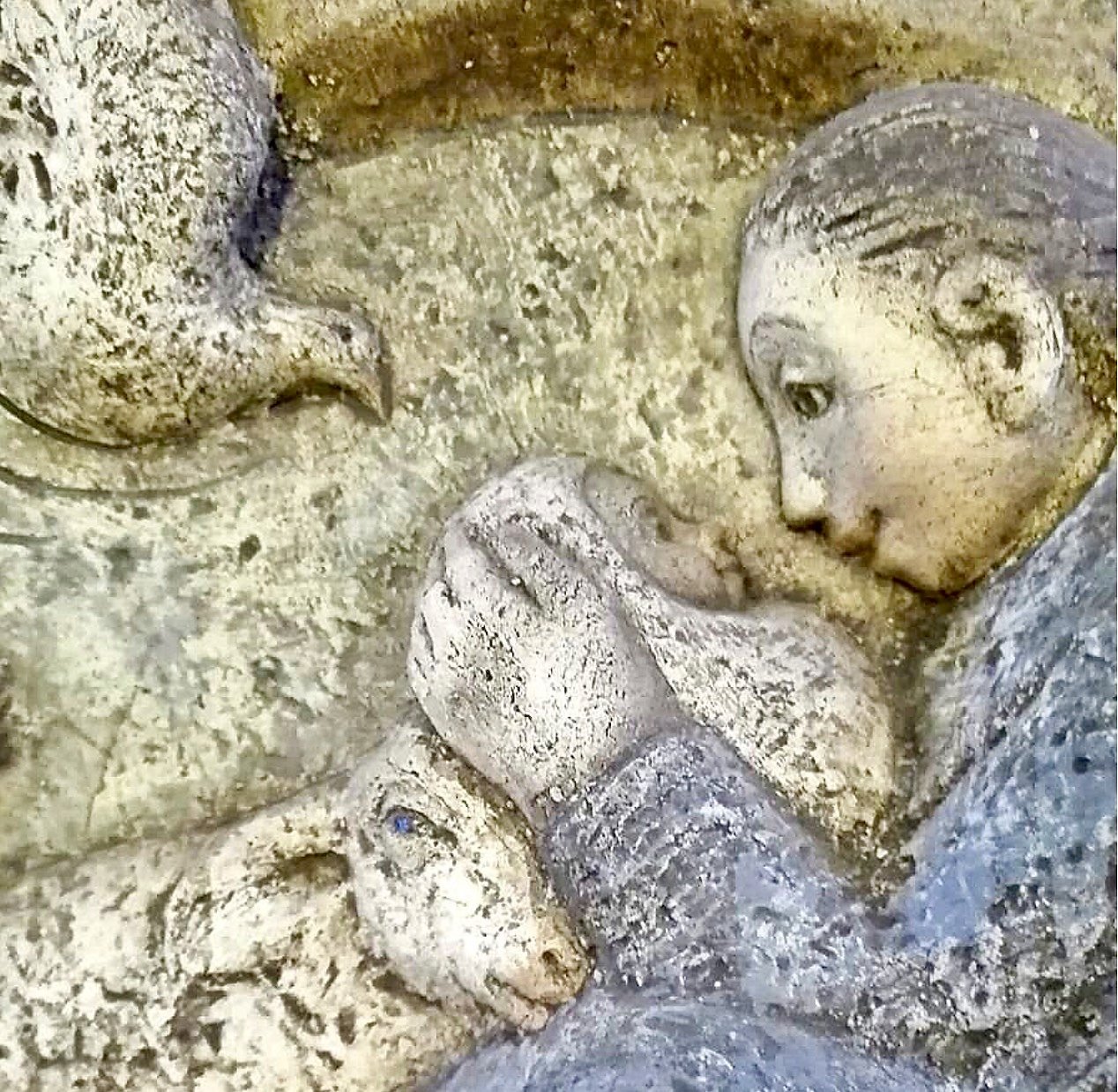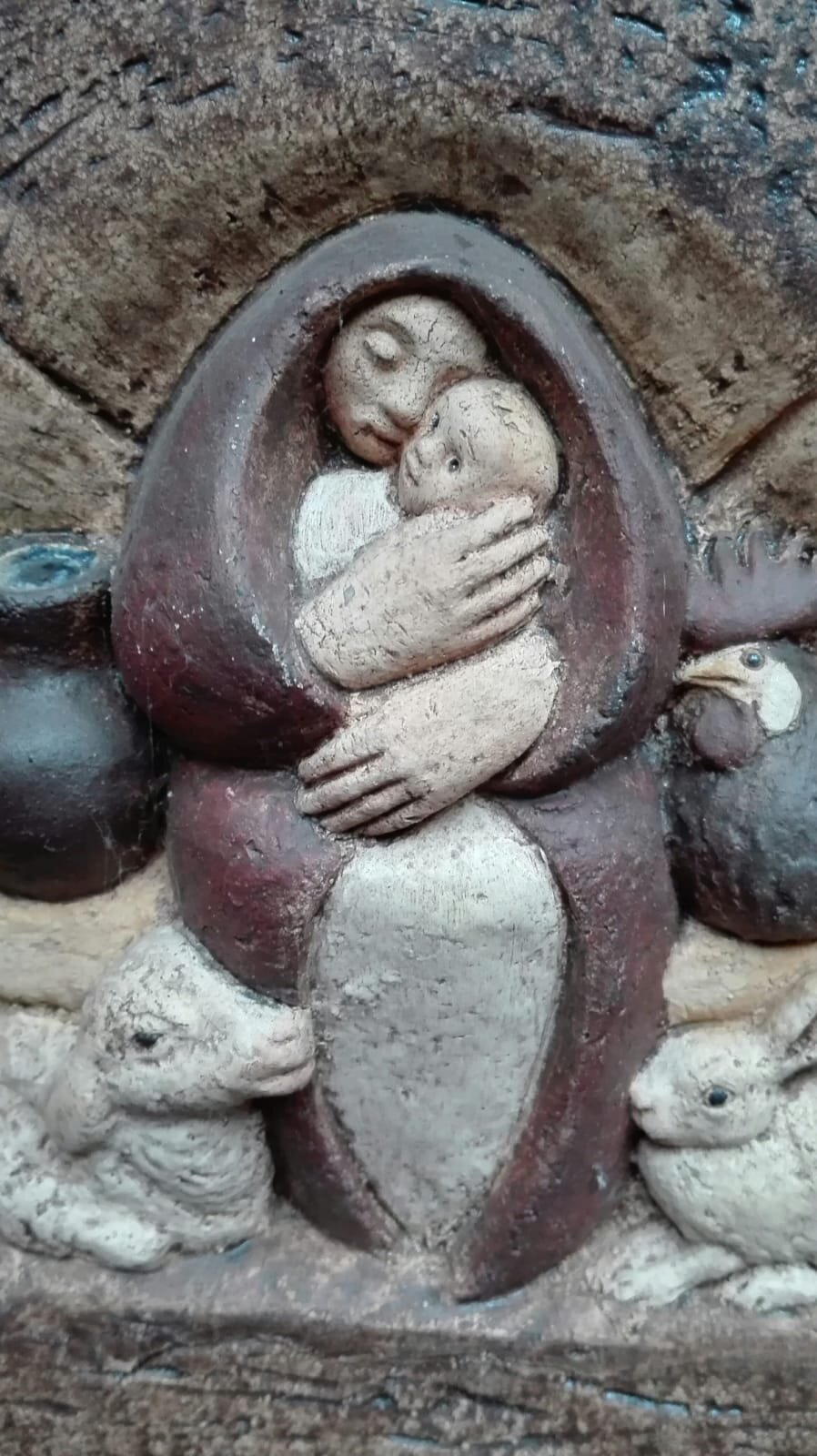It is in holy birth, that our sufferings and joys intermingle. Come listen and see, and hold your sorrows into Christmas.
Welcome to our “little cloister”
where we
EXPLORE MONASTIC WISDOM FOR EVERY DAY LIVING
Drs. Almut & Chuck with little one
Home of
+The Hildegard Seminar,
+Kierkegaard Masterclass,
+Bach Passionweek Consolations,
+The 12 Days of Christmas Contemplations &
+The “Little School” of Spiritual Formation






